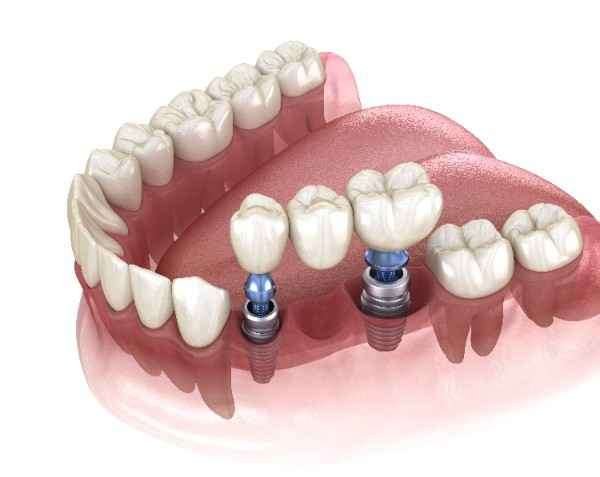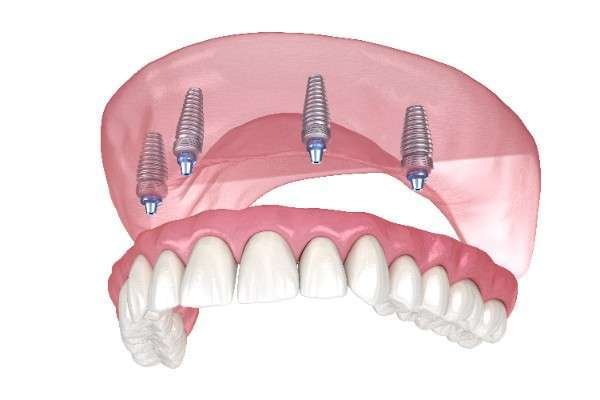Dental implants have transformed modern dentistry, offering a durable and natural-looking solution for those who have lost one or more teeth. Unlike traditional dentures or bridges, implants integrate with the jawbone, providing stability, functionality, and an appearance that mimics natural teeth. While dental implants are widely praised for their long-term reliability, their lifespan is not determined solely by the surgical procedure.
Various factors, from material choice to lifestyle habits, play a critical role in how long an implant can last. Understanding these elements helps patients make informed decisions and take proactive measures to protect their dental investment.
Quality of Implant Materials
One of the most important determinants of dental implant durability is the material used. The majority of implants are made from titanium or zirconia, both of which are biocompatible and capable of fusing with the jawbone. Titanium remains the gold standard due to its exceptional strength, longevity, and ability to integrate naturally with bone tissue. Zirconia offers a metal-free alternative, providing aesthetic benefits for patients who prefer a tooth-coloured option or have sensitivities to metal.

Key Points About Implant Materials:
- Titanium: High strength, proven long-term success, excellent osseointegration
- Zirconia: Natural appearance, biocompatible, ideal for sensitive patients
- Certified quality implants: Reduce risk of rejection or premature failure
Using a reputable product ensures the implant can endure daily chewing forces while maintaining its structural integrity for years. Patients often consult an emergency dentist in Swansea for guidance on selecting the most suitable materials and ensuring optimal outcomes.
Bone Health and Jaw Structure
The foundation of any dental implant is the jawbone. Adequate bone density and volume are essential for proper integration and long-term stability. If bone is insufficient due to previous tooth loss, osteoporosis, or injury, the implant may not anchor effectively, leading to complications or early failure.
Factors Related to Bone Health:
- Bone Density: Dense, healthy bone provides a strong foundation for implants.
- Bone Loss: Conditions like osteoporosis or previous extractions reduce support.
- Bone Grafting: Procedures such as grafts or sinus lifts can restore adequate bone for successful implantation.
A thorough assessment by a qualified dentist ensures the jaw can accommodate the implant, increasing the likelihood of durable, long-lasting results.
Oral Hygiene and Daily Care
Even the most well-placed implants can fail if oral hygiene is neglected. Maintaining the surrounding gum and bone health is critical to prevent peri-implantitis, a condition that can compromise the implant and lead to bone loss.
Essential Daily Practices:
- Brush at least twice daily with a soft-bristled toothbrush
- Use floss or interdental brushes to remove plaque between implants
- Attend routine check-ups and professional cleanings
A consistent oral care routine ensures that dental implants remain healthy, functional, and aesthetically pleasing over time.
Lifestyle Factors
Lifestyle choices can have a direct impact on how long a dental implant lasts. Simple adjustments can prevent premature wear or failure.
Impactful Lifestyle Habits:
- Smoking: Impairs healing and increases risk of infection
- Alcohol Consumption: Excessive intake can slow bone recovery
- Diet: A nutrient-rich diet with calcium and vitamin D supports bone and gum health
Patients who commit to healthier lifestyles often enjoy longer-lasting results, fewer complications, and improved oral health overall.
Bite Forces and Chewing Habits
The forces exerted during chewing can also affect implant longevity. Excessive bite force or bruxism (teeth grinding) may lead to implant loosening or fractures.
How to Protect Your Implant:
- Wear night guards to prevent damage from grinding
- Correct misaligned bites through dental adjustments
- Avoid chewing extremely hard foods like ice or hard candy
Managing bite pressure ensures the implant remains stable and functional for decades.
Professional Expertise and Surgical Technique
The experience and skill of the practitioner placing the implant significantly influence its success. Accurate pre-surgical planning, precise placement, and careful post-operative care all contribute to implant durability.
Key Considerations:
- Experienced Practitioners: Understand jaw anatomy and surgical techniques
- Pre-Surgery Planning: Comprehensive evaluation of bone and bite ensures proper placement
- Post-Surgery Care: Follow-up visits and professional guidance improve long-term results
Many patients seek an Emergency dentist in Swansea who combines expertise in general dental care and implant placement, ensuring both safety and optimal longevity.
Medical Conditions and Medications
Certain health conditions and medications can affect the success of dental implants. Patients must share their complete medical history with their dental provider to prevent complications.
Conditions to Consider:
- Diabetes: Uncontrolled diabetes can slow healing and increase infection risk
- Autoimmune Disorders: May interfere with bone integration
- Osteoporosis: Weakens bone and can compromise implant stability
- Medications: Some drugs may affect bone density or healing
Being aware of these factors allows for tailored treatment plans, enhancing the implant’s lifespan and effectiveness.
Maintenance and Follow-Up Care
Even after a successful implant procedure, ongoing care is essential to ensure long-term durability. Regular dental visits allow early detection of potential problems and help maintain oral health.
Maintenance Tips:
- Schedule routine check-ups every 6–12 months
- Follow dentist-recommended oral hygiene practices
- Address early signs of gum inflammation or discomfort promptly
Consistent maintenance can make dental implants a permanent solution, providing function and aesthetics for many years.
Choosing the Right Candidate
Not every patient is automatically suitable for a dental implant. Ideal candidates include those with sufficient bone density, good oral hygiene habits, and a commitment to maintaining follow-up care. Conversely, patients with uncontrolled chronic illnesses or certain bone conditions may need specialised assessment or alternative solutions.

Collaborating with a skilled dentist ensures the patient receives the most appropriate and safe treatment. Those seeking dental Implant Swansea can benefit from personalised care tailored to their unique dental and medical profile.
Innovations in Implant Longevity
Advancements in dental technology continue to improve the lifespan of implants. Innovations such as computer-guided implant placement, 3D imaging, and high-quality biomaterials contribute to better integration, precise placement, and fewer complications.
Key Benefits of Modern Techniques:
- Enhanced surgical accuracy
- Reduced recovery times
- Improved aesthetic outcomes
- Lower risk of implant failure
Patients opting for these modern solutions often experience both functional and cosmetic satisfaction over the long term.
Conclusion
The longevity of dental implants depends on a combination of factors, including material quality, bone health, oral hygiene, lifestyle, surgical expertise, and ongoing maintenance. Taking a proactive approach in each of these areas maximises the chances of a durable, successful implant. Consulting a qualified professional ensures that implants are carefully planned, placed, and monitored for optimal results.
For patients in Swansea, expert guidance guarantees personalised treatment that enhances both function and appearance. With the right care and attention, dental implants can provide a confident, long-lasting smile that stands the test of time.

![Crossplay Valorant : avenir sur Xbox et PS5 [Guide]](https://manabirona.com/upload/photos/2025/07/ePrViRWqbHUdDbxNxoxp_15_fe673595ea79b8e77157f1e5b8a1fee1_image.png)

